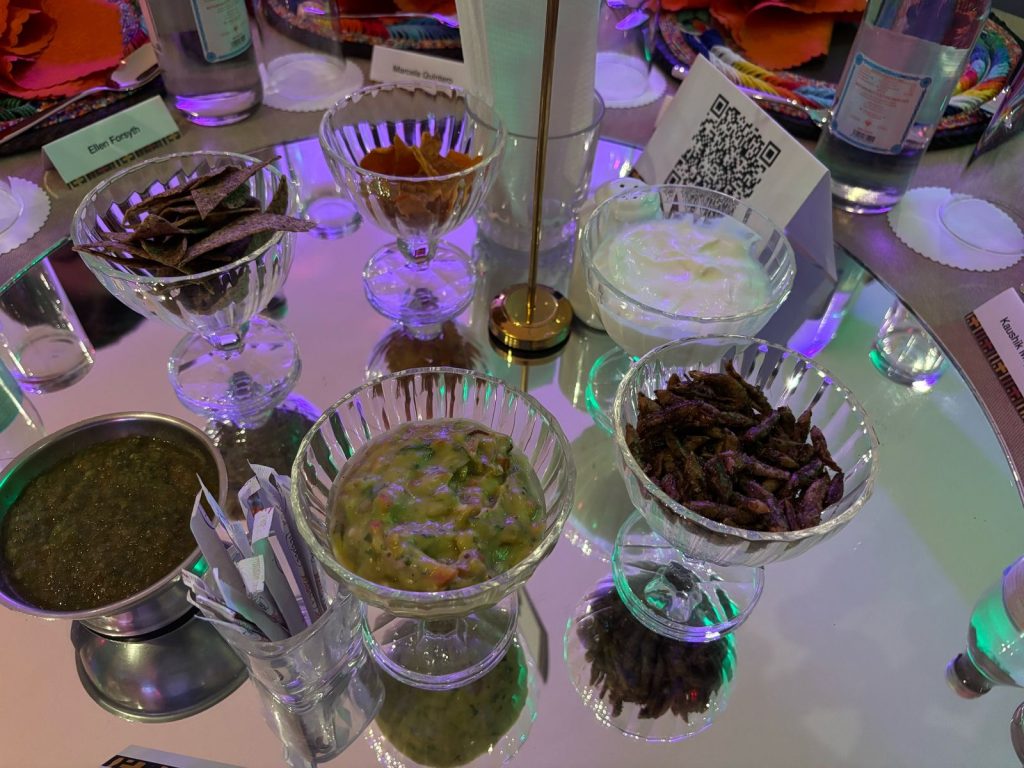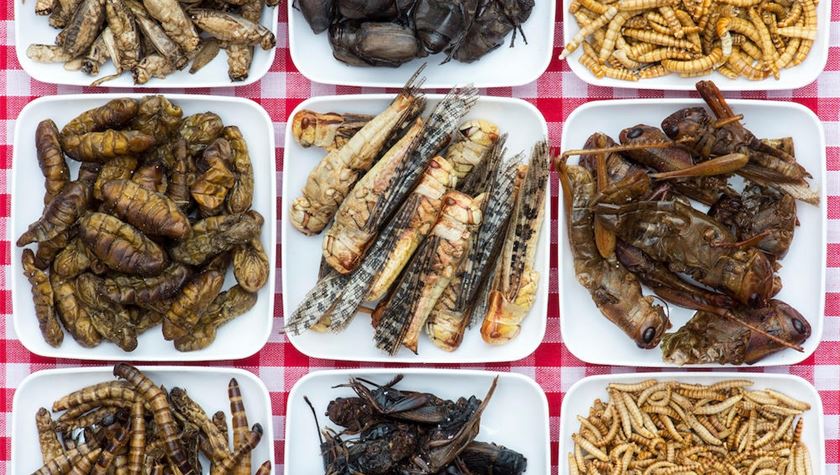By Eddah Waithaka
The International Centre of Insect Physiology and Ecology (ICIPE) and the Alliance of Biodiversity International and CIAT on Tuesday hosted a “Biodiversity Bites: A culinary journey into agricultural research in Africa” an immersive dining experience showcasing how food innovations are tackling global biodiversity, climate, and land challenges.
The event, held on the sidelines of CGIAR Science Week, took place on April 8, 2025, at the Icipe Campus in Nairobi.
Guests savoured a curated menu featuring research-driven crops like beans, rice, vegetables, bananas, and edible insects each dish paired with insights from scientists on its role in food system transformation.
Speaking during the event, Dr. Abdou Tenkouano, Director General of ICIPE, emphasized the center’s mission saying, “We are interfacing with insects for the betterment of people and the environment,” he declared. “They produce clean food, help sanitize cities, and create jobs for youth.”
Founded by renowned scientist Thomas Risley Odhiambo, ICIPE has become a hub for insect science, focusing on health, human, animal, plant, and environmental.
Insects: Africa’s Untapped Nutritional Goldmine
Globally, over 2,000 insect species are consumed as food, with Africa home to 500. Grasshoppers, mopane caterpillars, and crickets dominate local diets, but Dr. Margaret Kababu of the ‘Insects for Food and Other Uses’ program urged broader adoption.
“Insects offer up to 70% protein surpassing beans and rivaling beef,” she said. “They are packed with iron, zinc, omega fatty acids, and bioactive compounds for pharmaceuticals.”
Singapore recently approved 16 insect species for restaurants. “Africa should not wait,” Dr. Abdou argued. “We grew up eating insects, now they are delicacies.”

Read More Stories At: https://africawatchnews.co.ke/eastern-africa-agroecology-conference-highlights-insect-frass-fertilizer-as-key-to-sustainable-agriculture/
From Waste to Wealth: Insects Boost Farms and Ecosystems
Insects like the black soldier fly convert organic waste into protein-rich animal feed and fertilizer. “They clean the environment while increasing crop yields and farmer profits,” Dr. Kababu explained.
Trials in 25 crops show insect-based fertilizers improve soil health and growth rates.
Additionally, Dr. Kababu noted that Insects provide up to 70% protein, surpassing beans and rivaling beef. They are packed with iron, omega fatty acids, and even combat food insecurity.
Overcoming Reluctance: Taste, Don’t Fear
Despite benefits, cultural resistance persists. “Reluctance stems from ignorance,” Dr. Abdou admitted. “Close your eyes, taste, and you will return.”
Dr. Kababu suggested grinding insects into powder for seamless integration into staples like bread or porridge.
Traditional Foods Join the Fight
Céline Termote, a senior scientist at the Africa Team Lead Food Environment and Consumer Behavior, highlighted parallel efforts to revive nutrient-dense traditional leafy vegetables. “They thrive in poor soils, resist pests, and combat climate change,” she said.
With Kenyans consuming only ’63kg of vegetables annually‘ versus the recommended 90kg, Termouta called for consumer education to reintegrate these crops into diets.
ICIPE’s vision hinges on policy shifts, farmer training, and public awareness. “Insects are the heart of biodiversity,” Dr. Abdou asserted. “Embracing them ensures food security, health, and a greener planet.”
The dinner blended gastronomy with science, illustrating how research transforms food systems. From insect-based protein to drought-resistant crops.
ICIPE is leading a bold initiative to integrate insects into African diets, promoting them as a sustainable, nutrient-rich solution to food insecurity.
Read More Stories At: https://africawatchnews.co.ke/





